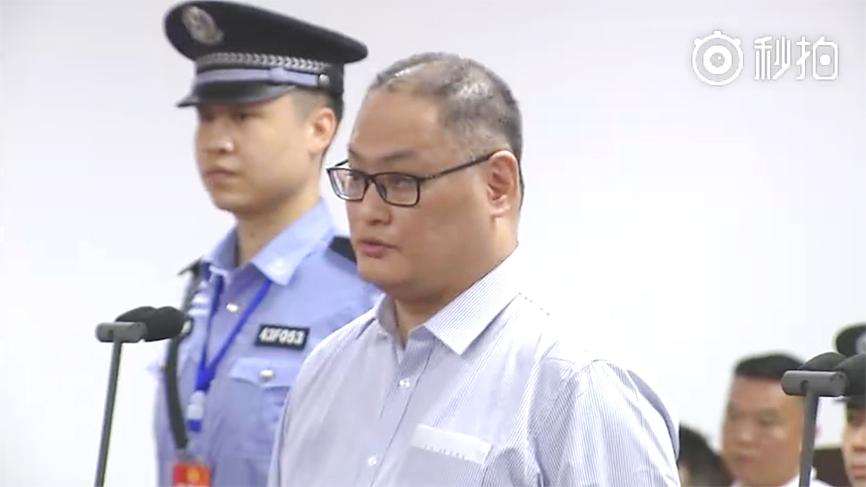Taiwanese human rights advocate Lee Ming-che (李明哲) would soon be released from prison, China’s Taiwan Affairs Office (TAO) said yesterday.
Lee, who in November 2017 was sentenced to five years in prison for “subversion of state power,” would be released “shortly” when his sentence is completed, TAO spokesman Ma Xiaoguang (馬曉光) told a media briefing, adding that authorities would arrange for his return to Taiwan.
While not specifying when Lee would be released, Ma said that Lee’s health was “stable.”

Photo: CNA
Non-governmental organizations in Taiwan, including Amnesty International Taiwan, estimated that Lee would complete his jail term today, reasoning that the eight months he spent in detention before being officially sentenced should count toward his sentence.
Ma also said that Chishan Prison in Hunan Province, where Lee is being held, had suspended in-person visits by family members of prisoners since COVID-19 outbreaks in 2020.
Authorities had ensured Lee’s rights to communicate with people outside the prison according to the law, Ma said.
However, Amnesty International Taiwan — which has helped Lee’s wife, Lee Ching-yu (李凈瑜), to campaign for his release — said that his family had not received any notice from Chinese authorities about his pending release.
Last month, the group said that Lee Ming-che had for the past two years been barred from speaking to his wife on the telephone or writing to his family.
During the two-year period, Lee Ching-yu applied to visit her husband at the prison 16 times, to no avail, the group said, adding that the family members of other prisoners had visiting rights.
Lee Ming-che, a staff member of Wenshan Community College in Taipei, was arrested in March 2017 while visiting China’s Guangdong Province from Macau.
He was sentenced to five years in prison and an additional two years of disenfranchisement in November 2017 for “subversion of state power.”

A magnitude 5.6 earthquake struck off the coast of Yilan County at 12:37pm today, with clear shaking felt across much of northern Taiwan. There were no immediate reports of damage. The epicenter of the quake was 16.9km east-southeast of Yilan County Hall offshore at a depth of 66.8km, Central Weather Administration (CWA) data showed. The maximum intensity registered at a 4 in Yilan County’s Nanao Township (南澳) on Taiwan’s seven-tier scale. Other parts of Yilan, as well as certain areas of Hualien County, Taipei, New Taipei City, Taoyuan, Hsinchu County, Taichung and Miaoli County, recorded intensities of 3. Residents of Yilan County and Taipei received

Taiwan has secured another breakthrough in fruit exports, with jujubes, dragon fruit and lychees approved for shipment to the EU, the Ministry of Agriculture said yesterday. The Animal and Plant Health Inspection Agency on Thursday received formal notification of the approval from the EU, the ministry said, adding that the decision was expected to expand Taiwanese fruit producers’ access to high-end European markets. Taiwan exported 126 tonnes of lychees last year, valued at US$1.48 million, with Japan accounting for 102 tonnes. Other export destinations included New Zealand, Hong Kong, the US and Australia, ministry data showed. Jujube exports totaled 103 tonnes, valued at

TRUST: The KMT said it respected the US’ timing and considerations, and hoped it would continue to honor its commitments to helping Taiwan bolster its defenses and deterrence US President Donald Trump is delaying a multibillion-dollar arms sale to Taiwan to ensure his visit to Beijing is successful, a New York Times report said. The weapons sales package has stalled in the US Department of State, the report said, citing US officials it did not identify. The White House has told agencies not to push forward ahead of Trump’s meeting with Chinese President Xi Jinping (習近平), it said. The two last month held a phone call to discuss trade and geopolitical flashpoints ahead of the summit. Xi raised the Taiwan issue and urged the US to handle arms sales to

BIG SPENDERS: Foreign investors bought the most Taiwan equities since 2005, signaling confidence that an AI boom would continue to benefit chipmakers Taiwan Semiconductor Manufacturing Co’s (TSMC, 台積電) market capitalization swelled to US$2 trillion for the first time following a 4.25 percent rally in its American depositary receipts (ADR) overnight, putting the world’s biggest contract chipmaker sixth on the list of the world’s biggest companies by market capitalization, just behind Amazon.com Inc. The site CompaniesMarketcap.com ranked TSMC ahead of Saudi Aramco and Meta Platforms Inc. The Taiwanese company’s ADRs on Tuesday surged to US$385.75 on the New York Stock Exchange, as strong demand for artificial intelligence (AI) applications led to chip supply constraints and boost revenue growth to record-breaking levels. Each TSMC ADR represents